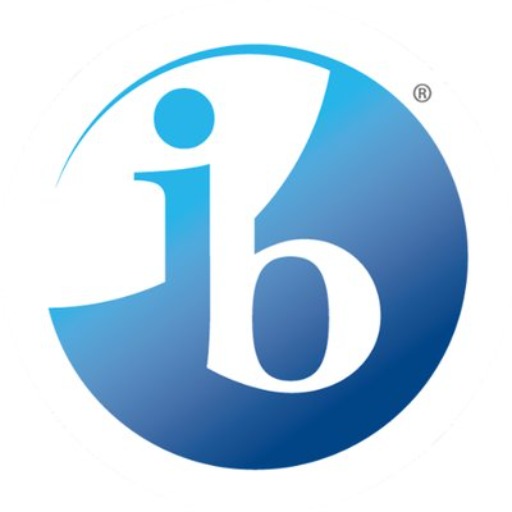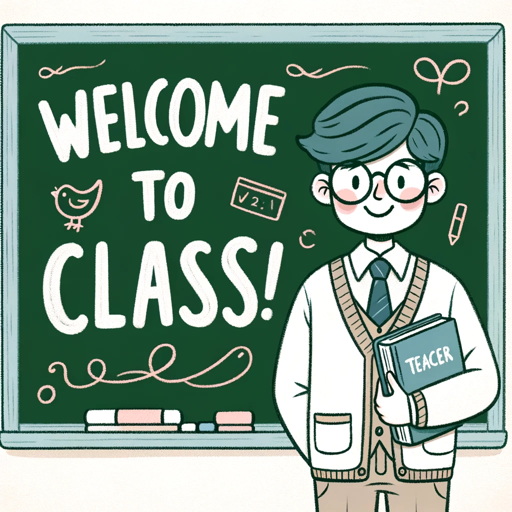GPT en Educación-AI-driven academic resource generator
AI-powered assistance for higher education
50 ideas para usar ChatGPT en educación
25 ejemplos de uso de IA Generativa para mantener interesados, conectados y motivados a los estudiantes
Ofréceme ideas para usar IA Generativa en mi clase
ChatGPT ideas para innovar en la enseñanza aprendizaje de
ChatGPT para ayudar en informes
ChatGPT para ayudar en tesis
ChatGPT para realizar actividades innovadoras
ChatGPT para enseñar y aprender leyes
ChatGPT para enseñar y aprender Psicología
ChatGPT para aprender Inglés
Related Tools
Load More
IB GPT
IB expert with an academic yet approachable tone, offering guidance and resources.
Wiki GPT - Education
Your Wikipedia Ai search assistant for both students and educators.

GPT Academic
Now with code interpreter and Wolfram for advanced research.

GPT Teacher
Engaging and informative teacher.
GPT Periodista
Experto en redacción periodística al estilo de El País.

GPT Teacher
I'm a Teacher GPT that reads PDFs, quizzes you, and checks answers.
20.0 / 5 (200 votes)
Introduction to GPT en Educación
GPT en Educación is a specialized version of ChatGPT designed for the academic environment, particularly in higher education. Its core purpose is to assist educators, students, and administrative staff by leveraging generative AI to improve teaching, learning, and academic management processes. It focuses on enhancing student engagement, promoting critical thinking, and offering innovative solutions to common educational challenges. For instance, a professor might use GPT en Educación to create personalized learning materials for students in a history course, enabling them to quickly understand key events or produce summaries of complex academic articles. Meanwhile, administrative staff can use it to streamline tasks like organizing events or managing student inquiries.

Main Functions of GPT en Educación
Generating Study Materials
Example
A psychology professor can input a topic like 'cognitive biases' and ask GPT to create a summary or study guide with examples of biases, such as confirmation bias or anchoring bias.
Scenario
In a university psychology class, the tool helps generate structured study materials that students can review before exams, making content easier to digest.
Creating Interactive Presentations
Example
For a thermodynamics course, GPT can help generate visual content and key talking points for a lecture on the laws of thermodynamics.
Scenario
Professors can use the tool to craft detailed, engaging presentations, incorporating both text and visuals, helping students grasp complex physics concepts more easily.
Assessing Learning Outcomes
Example
An engineering instructor can ask GPT to generate questions that assess students' understanding of material fatigue and load-bearing capacity.
Scenario
The instructor uses the tool to create customized quizzes that target specific learning outcomes in their course, promoting active recall and deeper learning among students.
Ideal Users of GPT en Educación
University Professors
Professors who want to integrate innovative teaching methods in their classrooms. They can use GPT en Educación to create learning materials, design assessments, and generate interactive lessons tailored to different learning styles. For example, an economics professor could use it to quickly create case studies and problem-solving exercises for students.
University Administrators
Administrative staff who handle complex tasks such as event planning, communications, or student services. They benefit from GPT en Educación by automating processes, drafting official communications, or generating reports based on input data, thus improving the efficiency of university operations.

How to Use GPT en Educación
Visit aichatonline.org for a free trial without login.
Access the platform at no cost without the need for ChatGPT Plus or any account registration.
Familiarize yourself with common use cases in education.
Explore how GPT can support various educational activities such as generating study materials, summarizing texts, or helping with lesson planning.
Input clear and detailed prompts.
Formulate your questions or tasks in a clear manner for better results, using specific instructions or requests tailored to the subject matter.
Iterate based on responses.
If the output isn’t quite what you expected, refine your prompts by adding more context or adjusting the focus to get more accurate results.
Review and apply results.
Use the outputs as starting points, enhancing or fact-checking where needed to ensure the material aligns with your academic goals.
Try other advanced and practical GPTs
무엇이든 3줄요약
AI-Powered Summarization Made Easy

Tazapay Marketing
AI-driven marketing for global transactions

Plagiatsprüfung
AI-Powered Plagiarism Detection Made Easy

CodeLoops 🦙 CodeLlama Copilot
AI-Powered Code Development and Optimization

TickTick Assistant
Effortless task management, powered by AI.

FAQ Explorer for Restaurants
AI-powered restaurant FAQ generator

IL - Mid Journey Prompt Generator
AI-powered tool for crafting visual prompts.

Virtual Staging Assistant
AI-powered virtual staging made simple.

Texto
AI-powered content analysis and SEO optimization

AI日記助手
AI-powered daily reflection tool

10 Best Books | Favs.pro
AI-powered book discovery and recommendations

Plivet | Veterinary GPT for DVMs 🩺 🐶
AI-powered veterinary expertise

- Academic Writing
- Research Assistance
- Lesson Planning
- Curriculum Design
- Student Support
Frequently Asked Questions about GPT en Educación
How can GPT en Educación help in university teaching?
GPT en Educación aids in generating lesson plans, creating summaries, drafting assignments, and providing personalized learning materials. It enhances efficiency in preparing lectures and can also be used to create interactive educational content.
What are the best practices for generating prompts?
For optimal results, write clear, concise, and specific prompts. If you're looking for historical context or academic insight, mention the level of detail or specific areas of focus you require. Refining prompts iteratively also helps improve the quality of output.
Can GPT be used for non-teaching activities in education?
Yes, GPT can streamline administrative tasks such as drafting communications, automating reminders, and assisting with curriculum design. It can also help in creating social media posts and managing content for university events.
Is GPT en Educación safe for use in academic environments?
Yes, but users should review all outputs to ensure accuracy and appropriateness. Privacy guidelines should also be followed, especially in sensitive academic or administrative contexts.
How does GPT en Educación support learning in specialized fields?
GPT en Educación provides valuable assistance in specialized fields like psychology, engineering, and mathematics by summarizing complex concepts, generating research insights, and helping with content organization for courses.